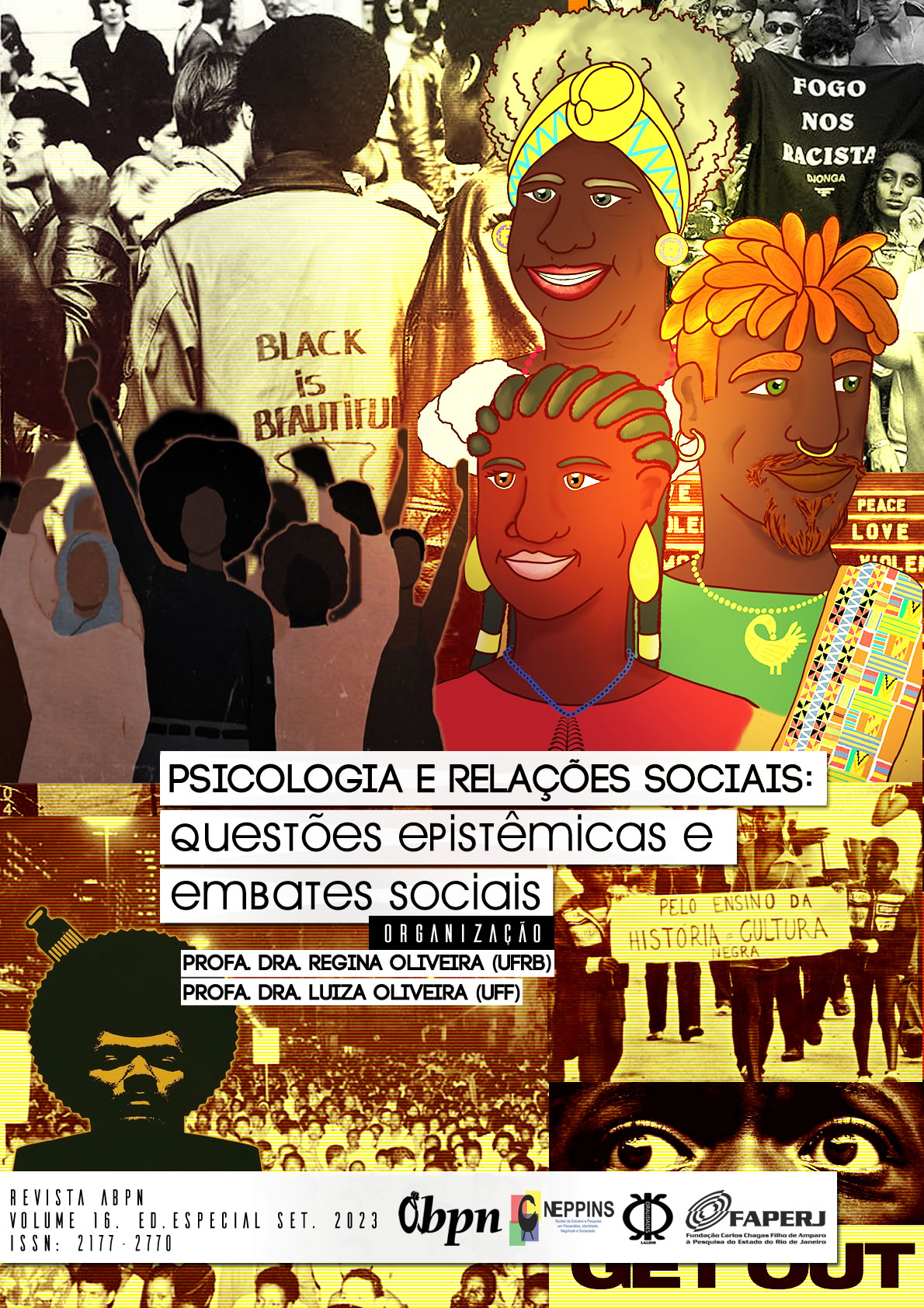PSICOLOGIA E RELAÇÕES ETNICO RACIAIS - ANCESTRALIDADES E FUTURISMO - TRIBUTO A ANTONIO CIAMPA, À SILVIA LANE, KABENGELE MUNANGA E IOLANDA OLIVEIRA
Main Article Content
Abstract
PSYCHOLOGY AND ETHNO-RACIAL RELATIONS - ANCESTRY AND FUTURISM - A TRIBUTE TO ANTONIO CIAMPA, SILVIA LANE, KABENGELE MUNANGA AND IOLANDA OLIVEIRA
Abstract: The field of psychology and race relations has been built by many hands on a daily basis. In Brazilian academia, difficulties have been imposed. However, the strength of the black educator movement persists and conquers new places in everyday life. At universities and psychology academies, silence is imperative. Racism takes place in society and generates impacts that the psychological academy needs to consider and train. This essay looks at the ancestry of psychology, the future dimensions and the steps that have already been organized so that the thread of the yarn always finds a new and more attractive path to equality, health and development for black, indigenous and poor white people.
Keywords: Ancestry; Memory; Psychology; Ethnic Race RelationsAbstract: Resumo Em Inglês, Times New Roman 12, Espaçamento Simples, Justificado
Article Details

This work is licensed under a Creative Commons Attribution 4.0 International License.
Copyright Statement
- Authors retain copyright and grant the journal the right of first publication, with work simultaneously licensed under the Creative Commons Attribution License CC-BY 4.0 which allows the sharing of the work with acknowledgment of the authorship of the work and initial publication in this journal.
- Authors are authorized to enter into additional contracts separately for non-exclusive distribution of the version of the work published in this journal (eg, publishing in institutional repository or book chapter), with acknowledgment of authorship and initial publication in this journal.
- Authors are allowed and encouraged to post and distribute their work online (eg in institutional repositories or on their personal page) at any point before or during the editorial process, as this may lead to productive changes as well as increase impact and citation of published work (See The Effect of Free Access).

